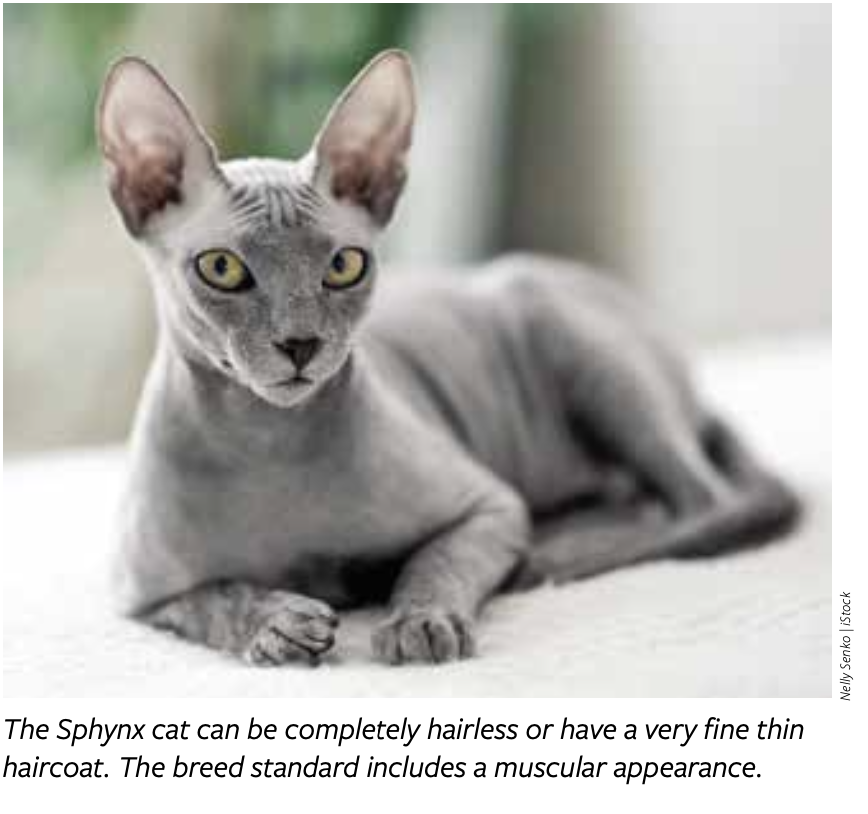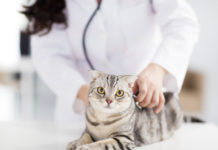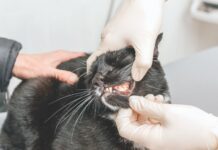Q: My wife and I have 2 female Sphynx cats that we bathe once or twice a week. Within a day or two after a bath, they tend to scratch at either side of their neck and back of their ears. We use oatmeal, plant-based coconut oil, and aloe vera shampoo for bathing. We also clean their ears, swabbing regularly with a veterinarian-recommended ear cleansing solution, so I do not believe scratching is due to dirty ears. Can you help with this issue?
A: Thanks for getting in touch about this issue, and I understand your concern about the scratching that you are observing. While it is not possible for me to specifically diagnose the cause from afar, perhaps a few thoughts about the situation you are describing might be helpful.
The first is that this may well be due to the bathing itself, and if this is the case, you will likely have to try different shampoo options to find out what might work. Of course, make sure that you have thoroughly rinsed away the shampoo before drying them, as shampoo residue can be irritating if left on the skin.
Another point is to make sure that you are using shampoos that are fragrance- free, mild, and, ideally, formulated for cats. You also might try a bit of an experiment and eliminate the coconut oil and oatmeal and just use shampoo, to rule out the possibility that they are experiencing sensitivity to one of these other products.
You might also consider the possibility that the itching is not due to the bathing, but to something else that they are reacting to. Of course, having your veterinarian check carefully for ear mites, fleas, and mites is important, as these are common causes of itching in cats. Cats can also develop allergies to things they eat, inhale, and/or come into contact with.
I think the likelihood of the latter is low, given the locations you describe them scratching, so the possibility of either food allergies or allergies to inhaled allergens (called atopy, like hay fever in people) are reasonable potential causes to consider.
One thing that might argue against allergies, though, is that both of the cats are affected. While it would be unusual for two cats to be allergic to the same thing, it’s certainly possible, particularly if they are related and may share the same genes that might predispose cats to specific allergies.
Ruling out food allergies requires a food trial that involves feeding foods that have protein sources (i.e., lamb or salmon) that are different from the ones found in their current food (i.e., chicken or beef), as proteins are the most common allergens that cause food allergies in cats. In carrying out such a trial, the cat must eat ONLY the new food, with no treats or human food, and the trial must be carried out for a minimum of eight weeks.
If a cat improves during such a trial, this suggests that the offending allergen was the one eliminated, and this should be avoided as a component of the cat’s diet. Several trials may need to be carried out to figure out which dietary proteins are the culprit. Another option is to feed a hydrolyzed diet, which contains proteins that have been partially digested so that they can no longer be recognized by the cat’s immune system that mediates allergies.
Diagnosis of atopy can be challenging, but can be informed by the history (i.e., seasonal itchiness, as may be seen with allergies to various pollens (spring/summer) and dust mites (winter, when cats may be kept indoors and heating is turned on, stirring up dust mites that may reside in duct work).
Veterinary dermatologists can also perform skin testing, during which various allergens are injected under the skin and the patient is monitored for an inflammatory reaction. Blood tests that check for circulating antibodies to various allergens can also be performed, but these are generally not as useful as skin testing.
Please discuss these issues with your veterinary team, and you can request consultation with a veterinary dermatologist if your primary veterinarian’s team has difficulty figuring out the cause of your cat’s itching. Best of luck, and send an update when you can.




